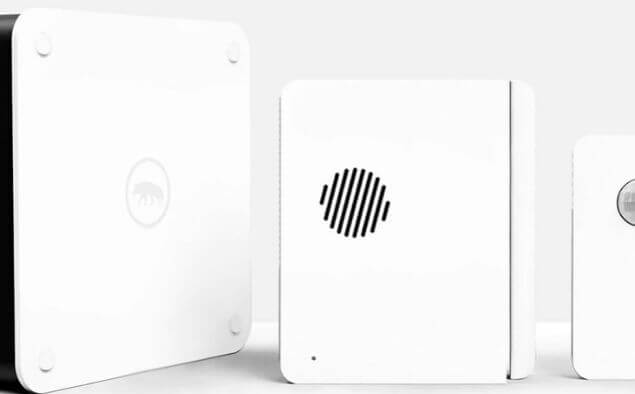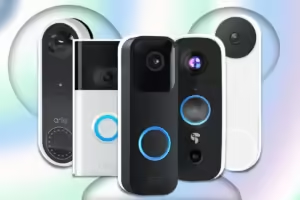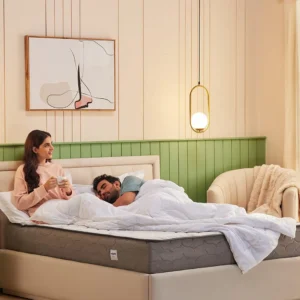Over half of the more than half a million burglaries that occurred in the United States in 2019 occurred during the day, according to the Federal Bureau of Investigation. Why should you be concerned about this statistic? Because you can also end up as a statistic if you don’t take aggressive measures to protect your house and assets.
Protecting your home, belongings, and family requires a reliable home security system. But picking the finest one is difficult because there are so many features and options on the market.
To assist you make the best choice possible, this guide will explain the features and prices of the top ten home security systems for 2024.
Our Top 10 Best Home Security Systems and Companies:
- ADT – Best home security system overall
- Vivint – Best for smart security
- SimpliSafe – Best for hassle-free coverage
- Cove – Best for 360 security
- Frontpoint Security – Best for low budgets
- SecurityPricer – Best for comparing
- ADT Self Setup – Best for short-term contracts
- Brinks Home –
- Deep Sentinel – Best for real-time monitoring
- Scout Alarm – Best for self-installation
Our Top 10 Best Home Security Systems
1. ADT
With over 140 years of expertise, ADT is a reputable home security provider. They provide a number of services, such as professional installation, round-the-clock monitoring, and a selection of equipment alternatives, including cameras, door and window sensors, and smart home appliances.
According to StarLinkHow’s cybersecurity expert Andrew Sinden, ADT is a “reputable firm with a long history of offering trustworthy and complete security solutions.” ADT’s six-month money-back guarantee, which is the largest full refund window on our list, and its numerous good customer reviews particularly reflect this feeling.
Reasons for selecting ADT: They offer complete safety around-the-clock and integrate with smart homes. With their mobile app, you can even control your security system and keep an eye on your house from anywhere in the world.
Our experience: The technician assisted us in setting up the mobile app and putting up a yard sign indicating that the house had a security system installed, and the installation went smoothly and quickly.
2. Vivint
A variety of smart security kits are offered by the well-regarded firm Vivint. You have total control over your house with to their software, which lets you lock and unlock doors, see security cameras, and turn on and off lights all from your phone.
Vivint is described as “an innovative home technology provider” by Raj, Chief Editor of WireQuality, who also highlights the company’s commitment to “ease of use, seamless connectivity, and enhancing safety and convenience for homeowners.”
Why we selected Vivint: Vivint’s skilled installers assess your house before making equipment recommendations, ensuring that you receive individualized attention right away. To help you save money on your electricity bills, they even provide energy management services.
Our experience: Vivint’s Smart Deter technology, which uses lights and noises to deter would-be criminals as soon as security sensors pick them up, impressed us.
3. SimpliSafe
SimpliSafe offers wireless security systems that are easy to use, reliable, and adaptable, and that are monitored around-the-clock. You can decide how much monitoring you’ll need and whether you want a professional or do-it-yourself installation.
Real estate investing company REI Insiders co-founder Eric Lee says, “SimpliSafe is a great budget option, and it’s easy to install and use.” The majority of their gadgets, like smart locks and video doorbells, are plug-and-play as well.
Why we selected SimpliSafe: Although professional installation is an option, SimpliSafe’s wireless systems don’t require it. Additionally, unlike other firms, you are not need to commit to an annual agreement because all of their contracts are month-to-month.
Our experience: Mounting components and configuring the monitoring system are simple thanks to the included sticky pads. We particularly enjoyed their live chat tool, which made it easy to contact customer care.
4. Cove
Cove offers top-notch home security products, such as alarm systems, smart sensors, and video surveillance. Their customer evaluations are very positive, and their DIY installation technique is easy enough for beginners.
You must sign up for one of Cove’s two monthly professional monitoring plans—Cove Basic or Cove Plus—in order to use its goods. While Cove Basic does not use security cameras, Cove Plus does. Although there is no contract to sign with Cove, you must make your monthly payments or your devices will stop functioning.
Why we choose Cove: 24/7 customer support is available for your security system, and it works with both iOS and Android smartphones. A 60-day money-back guarantee is also included with every purchase.
Our experience: We found it simple to set up the equipment ourselves, even though Cove provides expert installation as an alternative. We appreciated that the system allowed us to access the Cove emergency center around-the-clock, something we weren’t able to do with other do-it-yourself options.
5. Frontpoint Security
Alarm systems from Frontpoint Security are DIY-friendly and configurable. Additionally, their technology is totally cellular, which makes it perfect for erratic WiFi signals.
With helpful agents on hand from 8 a.m. to 11 p.m. on weekdays and 10 a.m. to 7 p.m. on weekends, their customer service is outstanding. Because Google Assistant and Alexa are incorporated into their gadgets, their consumers also enjoy the convenience of smart technology combined with security.
The reason we selected Frontpoint Security is that their equipment is completely wireless and cellular, making it easy to remove and relocate with you. This makes them particularly suitable for renters. Additionally, you can incorporate safety alerts like smoke detectors, cameras, and smart home appliances into your design.
Our experience: Adding security equipment to the plan later rather than purchasing it all at once allowed us to reduce the investment expenditures. We were pleased with the quality of their devices, even though they aren’t the most affordable choice for monthly monitoring.
6. SecurityPricer
A comparison tool called SecurityPricer provides free prices from the top home security providers available. It allows you to compare the features and prices of local businesses, despite not being a home security company itself.
After you provide your address and respond to a series of security-related questions, it displays your options for home security brands. Appointments can even be made online.
The reason we choose SecurityPricer is that it is totally free to use. It’s a particularly helpful tool for side-by-side service comparisons, which will help you choose the best product for your needs.
Our experience: Although finding the essential information was simple, we wish we didn’t had to visit the websites of each brand separately in order to obtain additional information.
7. ADT Self Setup
ADT owns the do-it-yourself security product known as ADT Self Setup. It enables you to set up and keep an eye on your home security system without the assistance of a professional.
Motion detectors, door and window sensors, and a smartphone app for remote control and monitoring are some of the features of the system. An added benefit is that, like ADT’s professionally installed security systems, you get a versatile protection system with excellent support.
Reasons for selecting ADT Self Setup: They are an easy-to-use do-it-yourself solution that is perfect for anyone who wish to directly monitor their home security and save money on installation.
Our experience: We found it simple to set up and connect the system to our cellphones and other compatible devices because ADT Self Setup’s products are integrated with Google Nest.
8. Brinks Home
Brinks Home Security provides a range of home security options supported by expert installation and round-the-clock surveillance. Motion sensors, intrusion alarms, and a touchscreen management panel are among its most basic security packages. But you may also add home automation gadgets, security alarms, and life safety sensors.
Additionally, Brinks Home Security provides each customer with unique contract terms and pricing. This guarantees that you will receive the precise package you choose. It lacks a medical alert device of any kind, and a full warranty will cost more, but that’s about the only drawback. Ultimately, for anyone seeking a professional service and a simplified security solution, we would suggest Brinks Home Security.
9. Deep Sentinel
An inventive security firm called Deep Sentinel employs cutting-edge technology to stop crime before it starts. Their security system has facial recognition software and live video surveillance, two essential components of a very strong defense system.
Deep Sentinel employs professional, round-the-clock surveillance and artificial intelligence. An AI-enabled center also analyzes your video feed to identify possible dangers.
Why Deep Sentinel was selected: Deep Sentinel is a strong option for dependable and state-of-the-art protection with an easy-to-use mobile app and superior AI-based technology.
Our experience: We appreciated that their security agents are properly trained and capable of initiating an emergency response when needed, despite the fact that they are more costly than other businesses.
10. Scout Alarm
Scout Alarm’s main offering is a modern, easy-to-use home security system that can be customized to fit the needs of individual homeowners.
The self-monitoring plan (Always On) costs $9.99/month, while the professional monitoring plan (Always On+) costs $19.99/month. Their top features include customizable email and phone notifications, and backup cellular connectivity and battery power.
Why we chose Scout Alarm: You can install the security features you want for your home without needing to pay installation fees. The advanced plan dispatches police and firefighters in case of emergency.
Our experience: The Scout Small Package only took us about 45 minutes to install. The process was as simple as connecting the Scout Hub to the WiFi router with an Ethernet cable, entering the installation code from the QuickStart card, and letting the Hub pair with each device.

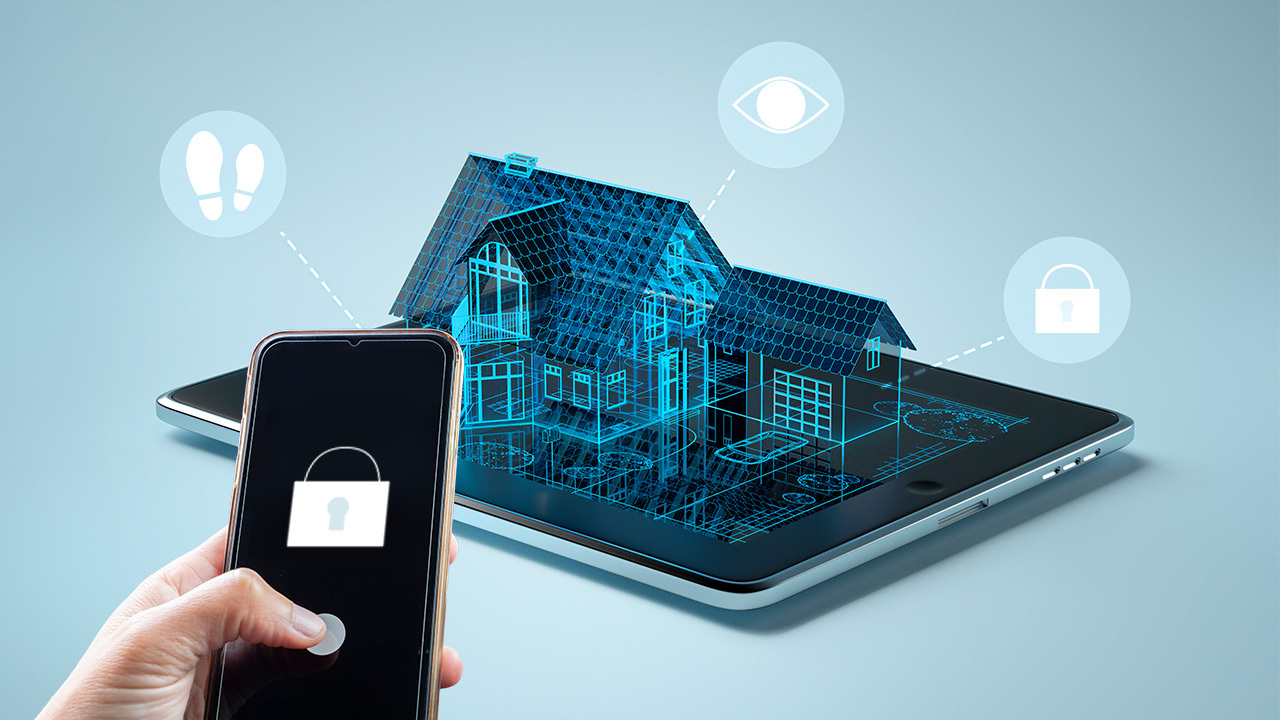







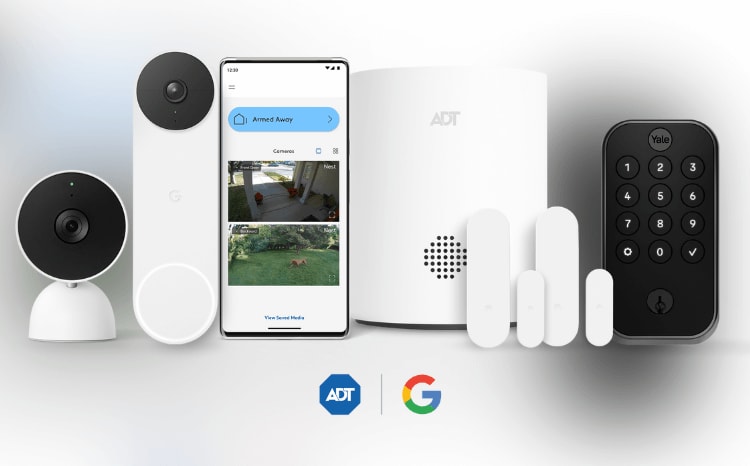
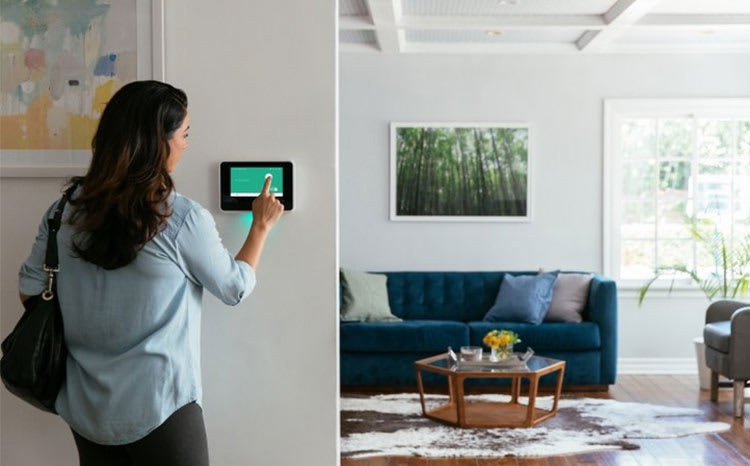
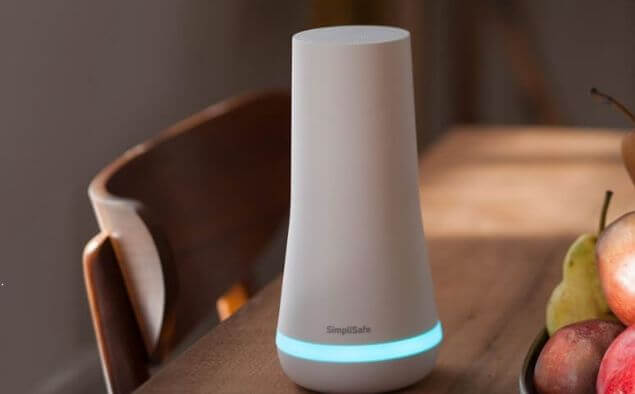

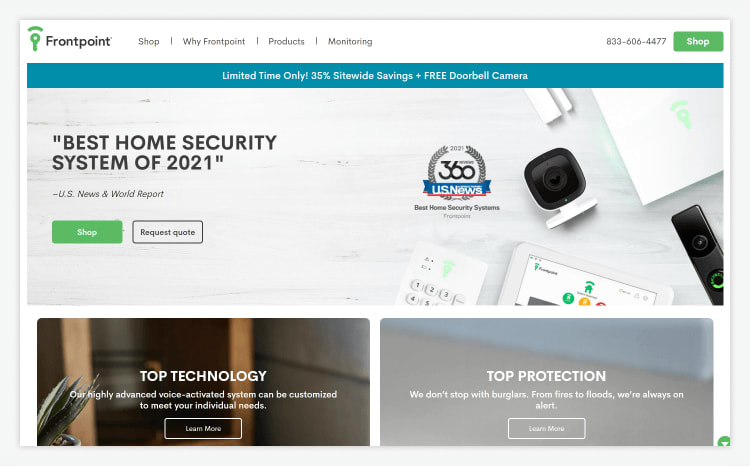

.20200424090351.png)


